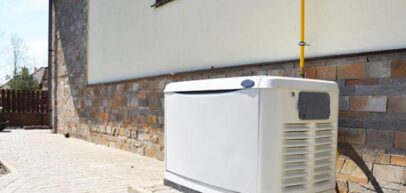Does Your Home's Utility Bill Seem Too High?
When your water bill skyrockets, you know for certain that you have a water leak. When your energy bill skyrockets, the cause is usually unknown, especially outside of extremely hot or cold months. The month of August is when we usually receive our highest bill in the mail.
Have you noticed that your recent energy bills have skyrocketed, or seem higher than they should be? There are many reasons why your electric bills could be higher these days. The obvious reasons include more people staying at home due to the pandemic, school breaks, as well as the need to crank up the air conditioner during the summer. Both increase energy consumption. We’re here to help you narrow down what causes spikes in energy bills, and what steps you can take to lower your energy usage each month.
COMMON REASONS FOR HIGHER ENERGY BILLS
Reason #1) Electric Company Rate Increases
Over the last year, we have seen several price hikes across almost every industry, and the energy sector is not absent from these price increases. This year alone, SWEPCO, an American Electric Power company, and major energy provider in Northwest Arkansas, has proposed a 17% increase on energy rates. Utility companies can increase rates for a number of reasons, such as natural disasters, offsets from capital improvement projects, and increases in fuel costs. These rate increases are typically proposed & voted on well in advance of their enactment. It is important to stay up to date with these rate increases, and make note of your energy bill for any increases that have not been publicly announced.
Reason #2) Older Air Conditioning/HVAC System
HVAC systems that are more than 10-15 years old are less efficient that today’s models, often due to governmental regulations that govern the minimum efficiency (SEER) standards for air conditioners & heat pumps. Older systems typically use R-22 refrigerants, or other older & outdated refrigerants that are not as efficient as the refrigerants of today. The average Central AC unit uses around 3,500 W of electricity or 12,000 BTUs every hour. During hot or cold months, your HVAC system is likely to run anywhere from 12-24 hours a day, depending on the outside temperature & climate. If you do not have a variable speed, or high efficiency system, then that means that your HVAC system is running at 100% power during this time.
Older HVAC systems, or those with lower SEER ratings tend to be less efficient at cooling or heating your home, and may lose a lot of that energy through your attic, ductwork, or unsealed cracks in your home. In addition, upgrading to a high-efficiency variable speed HVAC system can help to reduce your home’s cooling & heating costs.
Variable speed equipment enables your HVAC system to adjust its capacity according to your home’s temperature demand. While single-stage systems are either 100% on or 100% off, variable speed equipment runs almost continuously and uses various levels of energy to meet your home’s temperature needs. This offers three major benefits.
Single-stage HVAC systems waste energy by running at 100% capacity when they don’t have to. By contrast, HVACs with variable speed compressors have more flexibility in the amount of energy they use.
For example, you might have to run at 100% capacity on the hottest summer afternoons. But on milder days, your HVAC would only need to run at 30% capacity to give you the same indoor temperature. You wouldn’t be wasting 70% of your HVAC’s energy output by running 100% on those cooler days!
Reason #3) Leaky Air Ducts
The average home loses up to a third of indoor air due to leaking ductwork. This can cause uneven cooling and heating throughout your home, high utility bills, and consistently poor air quality. Paschal Air, Plumbing & Electric can help homeowners resolve this problem with professional duct sealing services. It can be difficult to realize you have an issue in the duct system since most of your ductwork is located behind your ceiling or walls, or in the attic. So when you start to experience energy inefficiencies or poor air quality, you may think the problem is coming from your heating or cooling equipment.
It’s important to have leaking air ducts inspected and repaired as soon as you notice problems in order to prevent further issues with your HVAC system, & to prevent increased energy bills.
But how do you know if your home is affected by leaking ductwork? Common warning signs include:
- Problems cooling or heating certain rooms
- Unexplained spike in your energy bill
- Your home has become dustier than usual
- You see noticeable gaps in exposed ductwork
Don’t attempt to seal up gaps or holes in the ductwork with duct tape; this is a temporary fix that won’t eliminate the source of the problem.
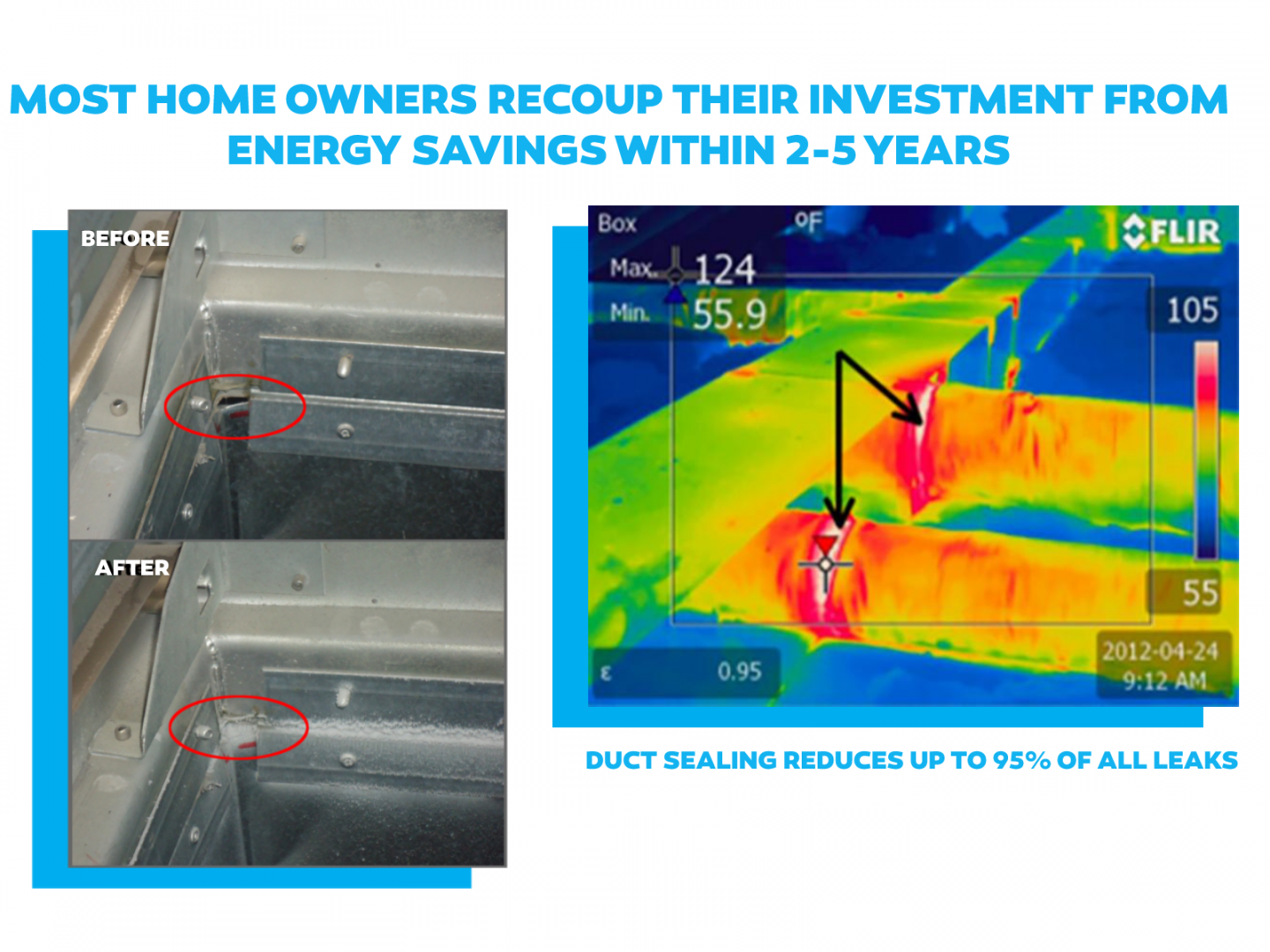
Reason #4) You Use a Lot of Hot Water in Your Home
If you have a large family that takes frequent, or long showers, then that could be a leading cause of increases in your energy bill. Water heating usually makes up about 18% of a home’s energy use. Many common household chores and activities, like washing dishes, doing laundry, and taking showers can use a lot of hot water. As you use up hot water, the water heater must use energy to heat more water. If your water heater uses electricity, then using a lot of hot water can lead to a high electric bill. According to the federal Department of Energy, hot water accounts for about 18 percent of your power bill – the second largest energy expense behind heating and cooling your home.
Turning down the temperature 10 degrees Fahrenheit on your hot water heater saves 3 to 5 percent on energy costs, so a drop from 140 F to 120 F saves you 6 to 10 percent. “Set too high, or at 140ºF, your water heater can waste anywhere from $36 to $61 annually in standby heat losses and more than $400 in demand losses,” the DOE says. Standby heat is heat loss from the water heater to a surrounding area like a cool basement. Annual energy costs for a hot water heater vary from $100 to $200, so this simple change could save you anywhere from $6 to $20 per year. Ideally, you could also switch to a tankless water heater which only heats water on demand, instead of needing to continuously keep a 40+ gallon tank hot at all times.
Reason #5) Vampire Sources Draining Power
Many people do not realize that leaving appliances plugged in, even when turned off, actively drain power & increase your energy usage. While the difference may not be as significant as when a device is turned on & active, these sources can add up over time. Think your television, your kitchen appliances, your smart speaker, your computer. These appliances and electronics draw a small amount of energy all the time. When you leave your computer charging – or even leave the charger plugged into the wall without your computer connected to it – it will continue to consume energy long after it’s charged.
When this happens, you’re wasting both energy and money. While vampire sources may not cause a sudden $50 surge in your energy bill, they are small drains of electricity that add up over time, especially if you have a lot of them. This idle power usage accounts for about 10% of residential electricity use, according to the U.S. Department of Energy’s Lawrence Berkeley National Laboratory. That can add up to more than $100 a year in energy costs.
The simple solution? Unplug devices when you’re done with them. Even if you’re not actively using them, they’re passively using electricity. And that electricity adds up over time. Stop these vampire sources right away to keep those little charges from driving your energy bill up over time.
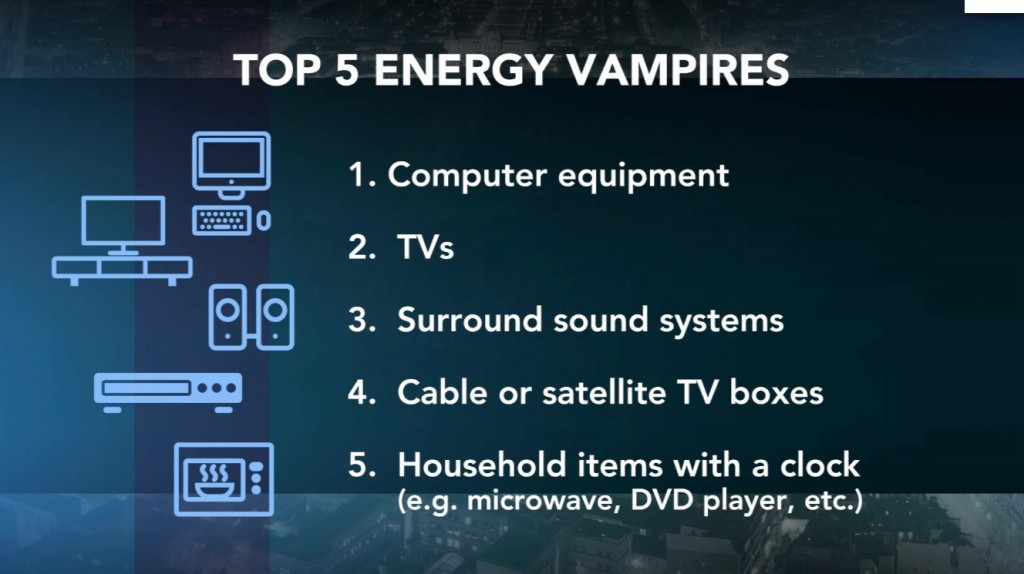
Reason 6) Inefficient Home Lighting
Incandescent lightbulbs and CFLs emit light and heat in all directions, which can waste a lot of energy. LED bulbs are much more efficient because they emit light in a specific direction. They use 75% less energy than traditional incandescent bulbs and last 25 times longer, which means that you’ll save money on bulbs and energy over the long term. Looking to upgrade your home to all LEDs? Contact us today to schedule an electrical consultation to replace your home lighting.
Reason #7) You’re Using Energy at Peak Demand Times
All commodities are subject to supply & demand, and energy is no exception. During certain times of the day & year, energy companies may discourage residents from utilizing too much power at one time, most energy companies impose higher rates during peak hours. In the summer, these hours are typically from 10:00AM-8:00PM, and in the winter, they are typically from 7:00AM-11:00AM & 5:00PM-9:00PM. Check with your energy provider to determine what hours they typically determine as peak demand times.
They may also provide you with incentives such as a free programmable smart thermostat in exchange for being allowed to control the climate in your home during these demand hours.
Reason #8) Inefficient Thermostat Usage
How you use your thermostat can also raise or lower your electric bill. Most of us adjust our thermostats based on how warm or cool we feel our house should be, and make several small adjustments throughout the day. Instead of adjusting the temperature based on what you want, think more about what your home needs. Then use a smart thermostat or a programmable thermostat to help you program those temperatures. For instance, you can program your heat to dial back during the day when no one is home, or at night when you’re asleep. Even when you are home, see if you can survive raising the temperature just a little bit in the summer, or lowering it in the winter. For every degree that you set back your thermostat, you can save about 6% on your energy bill.
If you are concerned about receiving a utility bill higher than average or expected, then give our energy specialists a call today at 479-900-0784 to discuss energy audit options.
Electric Resources
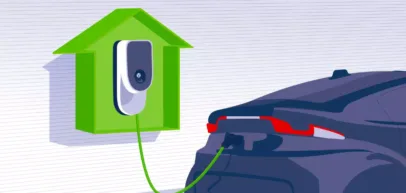
Electric
How to Choose the Right EV Charging Station for Your Home
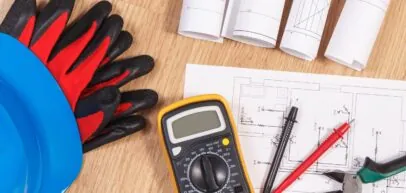
Electric
Electrical Safety Basics for Homeowners
